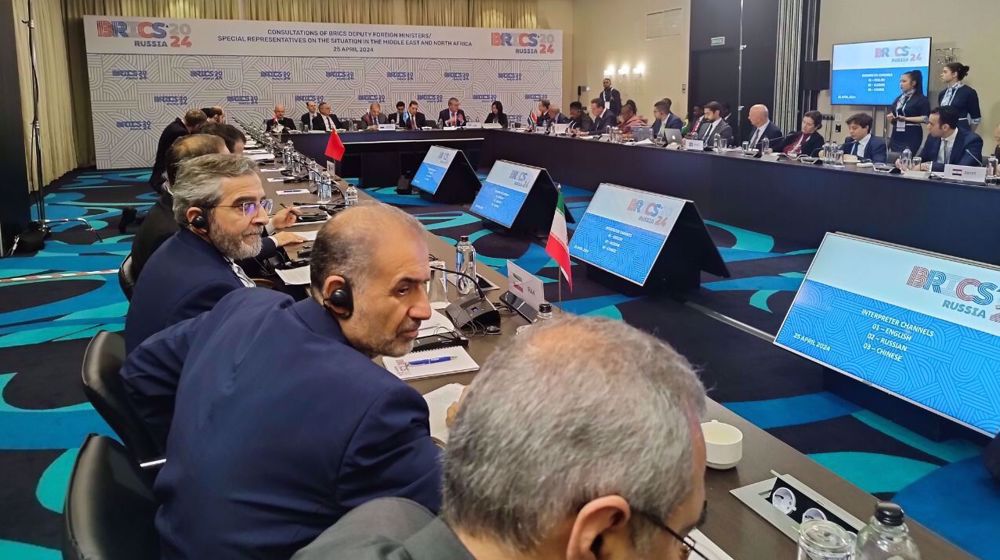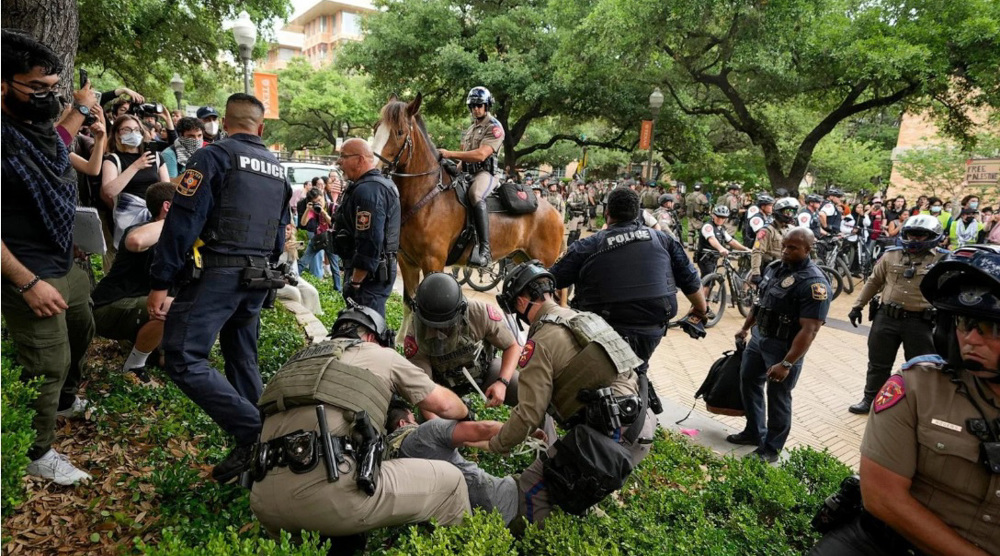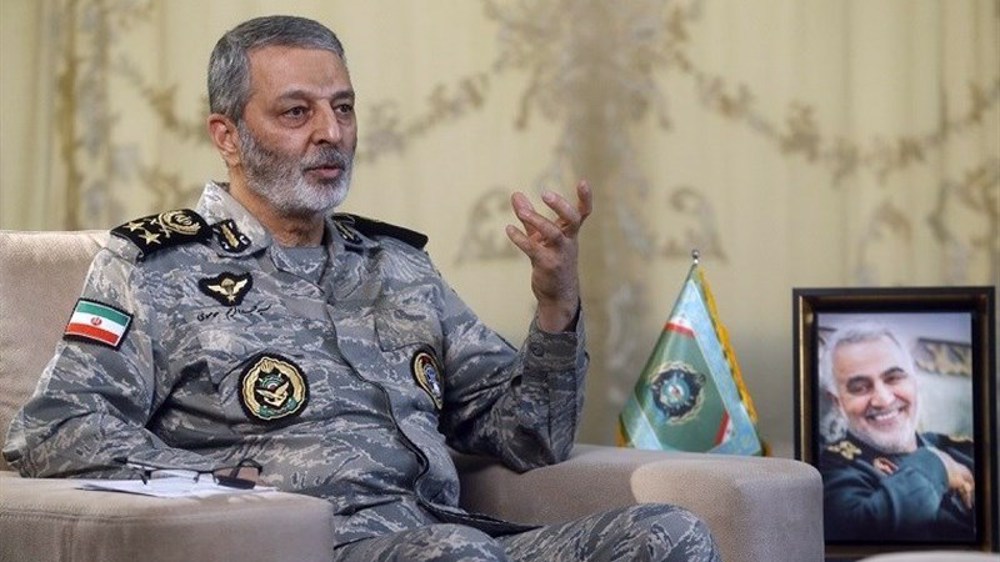Iran’s Zarif, Lebanon's Nasrallah discuss ME crises, nuclear issue
Iran’s Foreign Minister Mohammad Javad Zarif and Seyyed Hassan Nasrallah, the secretary general of the Lebanese resistance movement, Hezbollah, have discussed the latest developments in the Middle East, particularly in Lebanon.
In a Tuesday meeting in the Lebanese capital of Beirut, Zarif and Nasrallah held talks about efforts to find solutions to the current crises in several regional countries.
The two sides also exchanged views on the nuclear agreement reached between Iran and six world powers in the Austrian capital of Vienna in July.
On July 14, Iran and the P5+1 countries - the US, France, Britain, Russia and China plus Germany - finalized the text of the nuclear agreement, dubbed the Joint Comprehensive Plan of Action (JCPOA), in Vienna over Tehran's nuclear program.
The Tuesday meeting was also attended by a delegation accompanying Zarif in his tour of regional states and Iranian Ambassador to Beirut Mohammad Fat’hali.
The Iranian minister said resistance and peaceful coexistence among divine religions play a constructive role in establishing peace and boosting development in the region.
Zarif added that the resistance movement has restored dignity to Lebanon and the region, and has led to respectful coexistence among all Lebanese tribes and groups.
He expressed hope that more consultations and talks would help work out logical solutions to the ongoing problems in the region, particularly in Lebanon.
The top Iranian diplomat also pointed to the conclusion of nuclear talks between Iran and the P5+1 countries and said, “The nuclear agreement will have positive consequences on regional developments.”
He emphasized that dialog and diplomacy would help settle the current regional problems emanating from the Israeli regime’s divisive policies and the extremist approaches adopted by terrorist groups.
Positive JCPOA effects on Middle East
Nasrallah, for his part, commended the nuclear agreement between Iran and the six global powers and said the JCPOA would have positive and valuable outcomes for Lebanon and the entire region.
He said the resistance front and Hezbollah are making efforts to counter threats to regional nations.
The resistance front seeks to protect Lebanon and the region against dangers posed by the enemies who intend to trigger insecurity, destroy infrastructure and harm peaceful coexistence.
The Iranian foreign minister arrived in Beirut at the head of a delegation on Tuesday on the first leg of his second regional tour following the nuclear agreement between Iran and six world powers.
Earlier on Wednesday, Zarif met with Lebanese Defense Minister Samir Moqbel. Zarif on Tuesday sat down with Lebanese Prime Minister Tammam Salam. He also attended a press conference after the meeting and expressed Iran’s support for the Lebanese nation.
Iran after peace in region
In an interview with Press TV, Anna O'Leary, an Ireland-based journalist and political commentator, praised Iran’s strategic role in the region.
“On Iran, it’s primarily a peace-seeking nation. Like everything they do, they are seeking existence and peaceful coexistence through dialog and diplomacy with their neighbors,” O'Leary said on Tuesday.
Iran is respected as a world power and has very strong ties all over the region, O'Leary said, adding that Tehran is after diplomacy and not war. “Iran has never attacked another country in over 200 years.”
Touching on the recent breakthrough in Iran’s nuclear talks, the analyst further noted that there should be no worries about anything Iran is doing.
“In the region, they are looking for a solution to the crises that are affecting the countries around them. They have a very strong relationship with Damascus, with Lebanon. In fact they have even forged a relationship with Iraq who has attacked them in the past and forged that dreadful eight-year war ... Iraq was supported by America and even given intelligence satellite information … to impede Iran’s progress,” she added.
Elsewhere in her remarks, the political commentator also said that the Islamic Republic is very strong and powerful militarily and unlike some Arab countries it does not have to “call in on other forces to defend them.”
Referring to Saudi Arabia and Israel’s current policies in the region, she said, “Both Israel and Saudi Arabia are children of the American regime in the area, and it is through them that the US wages its proxy wars.”
She further emphasized that the Al Saud regime has always been close to Israel but in the current situation it is becoming even closer to Israel.
Yemeni forces strike Israeli ship, Port of Eilat in solidarity with Gaza
Columbia, Yale students bent on ending US support for Israeli genocide
VIDEO | Genocide in Gaza
Iran calls on BRICS to play role in stopping Israeli crimes
President Raeisi’s historic visit opens new chapter in Iran-Pakistan ties
Russia: Poland’s talks on hosting US nuclear weapons ‘dangerous’
VIDEO | Israel’s genocide bounty
India’s home minister vows to end Muslim reservation if his party wins










 This makes it easy to access the Press TV website
This makes it easy to access the Press TV website